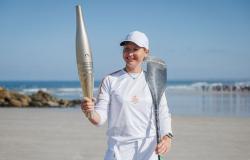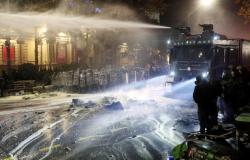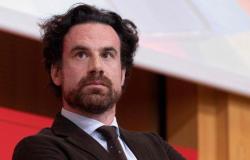Many unanswered questions after the plane crash in Lithuania, the SPD party executive nominates Olaf Scholz as candidate for chancellor – and our recommendations: The most important thing of the day in review.
The most important thing in the evening: The plane crash in Vilnius and Olaf Scholz’s nomination as SPD candidate for chancellor
And you can only read this in the NZZ: The UN climate summit in Baku ended in disappointment at the weekend. Rich countries want to spend $300 billion a year on adapting to climate change and other measures in poor countries – a tiny sum. However, complaints are unjustified. The decisive steps to reduce greenhouse gas emissions have long been taking place outside of major conferences. To the exclusive “NZZ Pro” comment
The most important thing in the evening
One dead in plane crash in Lithuania – debate about protecting critical infrastructure
This is what happened: One person was killed when a cargo plane crashed in the Lithuanian capital Vilnius early this morning. The plane was traveling on behalf of the German postal service DHL and took off from Leipzig. While attempting to land in Vilnius, it crashed close to a residential building. The cause of the accident is still unclear. There is so far no evidence that it was sabotage or a terrorist attack, said the Lithuanian Defense Minister. DHL said it currently had no evidence of suspicious packages on board the aircraft. To the report
That’s why it’s important: At the end of August it became known that German security authorities were warning about “unconventional incendiary devices” that unknown people were sending via freight service providers. The report was linked in security circles, among other things, to an incident at the DHL logistics center in Leipzig, the company’s global hub. A package that had come from the Baltics and contained an incendiary device burned there in July.
These are the reactions: The Green domestic politician Konstantin von Notz called on the Union to jointly pass the Kritis umbrella law before the federal election in order to better protect critical infrastructure, be it data cables in the Baltic Sea or freight traffic. “We simply have to accept that there are forces and forces on the move that are prepared to do outrageous things, and that is why we have to increase the level of protection,” said von Notz.
SPD chancellor candidate Olaf Scholz: We want to be ahead in the election
This is what happened: In Germany, the SPD executive board unanimously nominated Olaf Scholz as candidate for chancellor after a tough and controversial debate. The decision is to be confirmed at a party conference on January 11th. Despite poor poll numbers for the Social Democrats, Scholz is counting on a victory in the early federal elections in February. What the SPD wanted to achieve was pretty obvious, he said after his nomination: “Just like last time, we want to be ahead and become the strongest party.” To the report
That’s why it’s important: The nomination was preceded by a week-long stalemate. It was only on Thursday that Defense Minister Boris Pistorius decided not to run for office, clearing the way for Scholz. Recently, more and more SPD members and members of the Bundestag have spoken out in favor of Pistorius, who is very popular among the population. Scholz is considered ailing after the failure of his traffic light government.
What else happened
- ThyssenKrupp wants to save thousands of jobs in the steel division: The German industrial group announced that the number of its jobs should be reduced from 27,000 to 16,000 by 2030. Some of the positions will be eliminated, others will be outsourced. To the report
- Unicredit wants to take over a local bank: The major Italian bank has made a takeover offer to the shareholders of Banco BPM. If they agree, the largest banking group in Italy and one of the largest in the EU will be created. What does this mean for the negotiations with Commerzbank? To the report
- The Gulag Museum in Moscow will be closed: The state institution told the story of the Soviet prison camps and their victims. The fact that the museum is now closing shows that dealing with Russia’s dark past is no longer of great importance. To the report
- In the Gisèle Pelicot case, the prosecution is demanding the maximum sentence for the ex-husband: According to the prosecutor’s wishes, Dominique Pelicot should be sentenced to twenty years in prison. Gisèle Pelicot was drugged by her husband for years and raped by him and other men. To the report
- Tourist boat sank in the Red Sea: A total of 45 people were on board, including two tourists from Switzerland and four from Germany. 17 people are still missing. One of them comes from Switzerland. To the report
- The discussion about the gender star continues to simmer in the canton of Zurich: After the vote on Sunday, the Zurich city administration can use the gender star. Now the debate continues at the cantonal level: SVP cantonal councilor Susanne Brunner wants to abolish gender at universities. To the report
- Novak Djokovic surprisingly hires Andy Murray as coach: The British tennis player Murray, who retired in the summer, is expected to help his former rival to a record Grand Slam victory. To the report
Our recommendation for “NZZ Pro” subscribers
Trade with the USA: The future US President Donald Trump has announced that he will increase tariffs on all imports by 10 to 20 percent if economic relations do not become more balanced. What consequences would this have? Should the EU also impose punitive tariffs? And would there be better alternatives? To the background
Working with Chat GPT: The buzz around artificial intelligence (AI) began two years ago. At that time, the startup Open AI released an application called Chat-GPT, which for the first time made it possible to converse as if with a human. AI would be as revolutionary for humanity as harnessing electricity – that was the promise. The hype has now died down. The biggest problem with AI is still unsolved. To the comment
With the premium newsletter “NZZ Pro” you have a look ahead at the global economy and geopolitics. Try it now for 30 days free of charge. To register
This is what we recommend today
Past Worlds: The Italian author Dolores Prato only began publishing books at the age of seventy; She wrote her monumental work “There is no one down in the piazza” when she was eighty. In it, Prato tells the story of her childhood in a small Italian town at the end of the 19th century. At the same time it is a panorama of a bygone era. Now the magnificent book is appearing in German translation for the first time. To the review
Liberalized electricity market: If Switzerland concludes an electricity agreement with the EU, it will have to fully liberalize the domestic market. This makes certain demands, but it is a necessary step. To the comment
Infantile society: The language in the media is becoming increasingly childish. Nowadays everyone is “on the go”. Experts “clarify” and “classify”, and anyone who does not agree is quickly considered “toxic”. Apparently more and more people feel the need to be taken by the hand. To the background
Before you move on
???? Hear: No city in China is as heavily indebted as Tianjin in the east of the country. The China 117 Tower, an almost 600 meter high skyscraper, is an early reminder of the looming economic crisis in the metropolis. The building has been rising unfinished into the sky for nine years. Find out how this came about at “NZZ Audio”. Listen to the sample now with Apple Podcast | To the audio episode (only for subscribers)
???? See: Svetlana Alliluyeva was the only daughter of communist dictator Joseph Stalin. However, she hardly saw her father and her mother committed suicide at an early age. Alliluyeva grew up in a gilded cage, always monitored by secret service agents and surrounded by servants. She later fled to the USA, but first ended up in Switzerland. A documentary film traces Alliluyeva’s sad life. To the review
✏️ Puzzle: How well do you know our articles? Test your knowledge in the NZZ crossword puzzle. You can find the answers to all questions in our reports. To the crossword puzzle
I hope you had a good start to the new week. Have a nice evening!
Kathrin Klette
The briefing appears weekdays at 6 a.m. and 5 p.m. There is a weekend edition at 7 a.m. on Saturdays.





